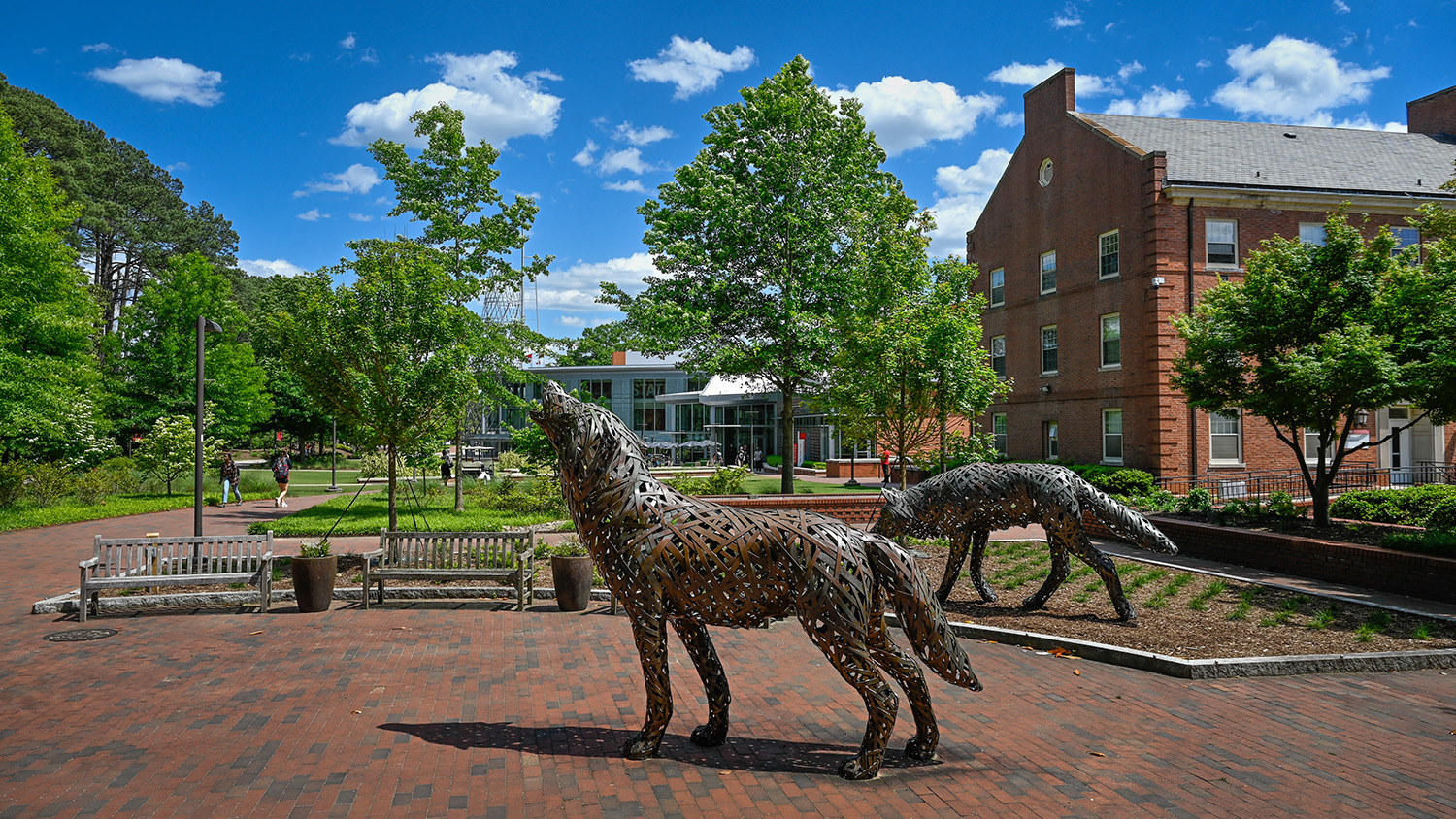Golden Moment
NC State video producer Neal Hutcheson distilled the art of making moonshine into an Emmy-winning documentary. “The Last One,” featuring one-of-a-kind bootlegger Marvin “Popcorn” Sutton, won a golden statuette Saturday in Atlanta as the Southeast region’s best cultural documentary.
Seeing the finished piece, it’s hard to believe “The Last One” started out as a flop.
Viewers glimpse a vanishing world as Popcorn coaxes his Model A into the Great Smoky Mountains to brew a final batch of moonshine the old fashioned way – heated on wood, tempered with fresh stream water – an art passed down by his father and grandfather.
“I’ve made all kinds of liquor in my time,” Popcorn says, tending the still. “I’ve made the fightin’ kind, the lovin’ kind, the cryin’ kind. I even made some one time and sold it to this couple – they was happily married. The next damn week, they was divorced.”
Hutcheson nearly went straight to DVD with the documentary after none of the film festivals he entered accepted it.
Hutcheson, whose previous work was screened at festivals from Asheville and Wilmington to Australia and Berlin, decided to give “The Last One” another chance. He expanded his bare-bones cinema verite, which showed Popcorn and friends as they built an old-fashioned copper still along a secluded creek, adding expert interviews that put moonshine making into context and historical footage that included “Snuffy Smith” cartoons and photos of raided stills.
He noticed the video was now just under an hour, ideal for PBS, which has aired eight of his documentaries with linguistics professor Walt Wolfram for the North Carolina Language and Life Project. Programmers at both UNC-TV and ETV in South Carolina snapped up the revised documentary.
“I was thrilled about getting it on television. The response was strong, so that was enough success for me,” Hutcheson says.
Then ETV forwarded a glowing e-mail from a retired public broadcaster who called it the best show he’d seen in 40 years in the industry. “Every person on the crew deserves an Emmy,” J. Neal Browder wrote.
“I was pleased he said that, especially because there was an assumption we’d had a crew, when I had done it entirely on my own,” Hutcheson notes with a chuckle. He decided to fill out the Emmy submission form that ETV sent along.
‘Thing of the Past’
Although one-man video shoots are demanding, Hutcheson develops comfortable relationships with those he interviews, leading them to recommend other people he should meet.
During his first trips to Appalachia for linguistics projects in 1999 and 2000, he knew no one and originally planned to stay a week in the spring and a week in the fall to shoot the seasonal scenery. But something happened by the time he released “Mountain Talk” three years later.
“Appalachia adopted me and laid a lot of responsibility on me,” Hutcheson says. By this time, he had spent enough time in people’s homes, with and without taping, that it would have been considered an insult for him to stay at a hotel. One woman, dying of brain cancer, extracted a promise that he would keep doing the work. “How can you say no to something like that?” he asks.
He felt an urgency to capture a way of life that was disappearing before his eyes. “You want to do your duty to the material. If you’re not recording it, there’s no guarantee it will be done.”
He captured the back-porch family music of 91-year-old Mary Jane Queen, a matriarch who knew hundreds of songs that originated in England, Ireland and Scotland, in “The Queen Family,” released in 2006.
And he followed up with Popcorn Sutton, one of the many voices featured in “Mountain Talk,” to produce what became “The Last One,” shot during a blistering summer week in 2004.
At one point in his moonshine-making demonstration, Popcorn pointed out that the still could explode. In 2007, one of his indoor stills elsewhere did, prompting a sting operation targeting Popcorn, who had been sentenced to probation for bootlegging in the ‘70s and ‘90s.
In poor health and facing prison time, Popcorn committed suicide on March 16. But not before leaving a legacy of materials on moonshine, including a book he wrote to provide for his wife, titled “Me and My Likker.”
By that time, “The Last One” had aired on public television in the Carolinas and found its way into rotation on the Documentary Channel. Although it referred to a final batch of moonshine, “The Last One” seems apt for Popcorn himself, who often described something as “a thing of the past.”
A slice of his life will live on through the film. Since the start of his documentary work “so many people have died,” Hutcheson says. “It underscores the value of what we do.”
Wolfram’s grants from the National Science Foundation and National Endowment for the Humanities fund linguistic research, related video work and a portion of Hutcheson’s salary. “The video work unites research with ongoing outreach in a way that’s very appropriate for a land-grant university,” Wolfram says.
In Production
When he’s not in the field, Hutcheson is holed up in an editing bay/office tucked into Tompkins Hall, part of the same complex of buildings where the Raleigh native attended college classes. As a student assistant, he worked on video ancillaries for a new North Carolina social studies textbook.
After graduating from the film studies program in 1992, he worked as a freelance producer/director in Research Triangle Park, picking up occasional video projects with his alma mater. After hearing that Wolfram needed some video work done, he stopped by for a meeting that proved to be a turning point in his career.
“I asked him, ‘Are you any good?’” Wolfram recalls. “It’s a good question to ask a person. You want them to be confident but with a sense of humility.” Hutcheson’s response: “I think I do good work.”
These days, so does the Academy of Television Arts and Sciences.
Hutcheson and Wolfram’s latest project is a coastal documentary “down east” in Carteret County, focusing on tension between commercial fishing communities and developers. “‘Atlantic’ is the working title because it’s the name of a town and a big grand-sounding name,” Hutcheson says.
And he may enter the NC State documentary “Carolina Brogue” in Emmy competition. Stay tuned.
- Categories:


